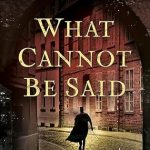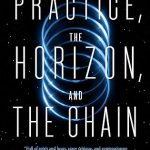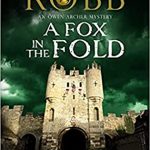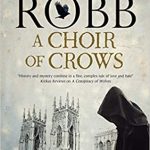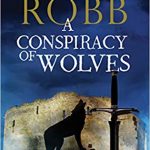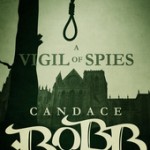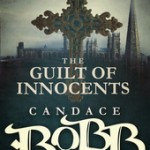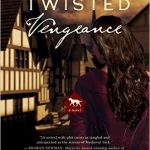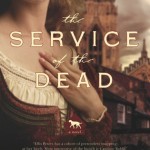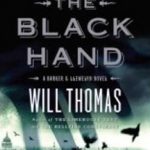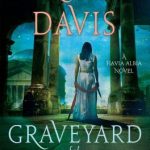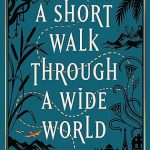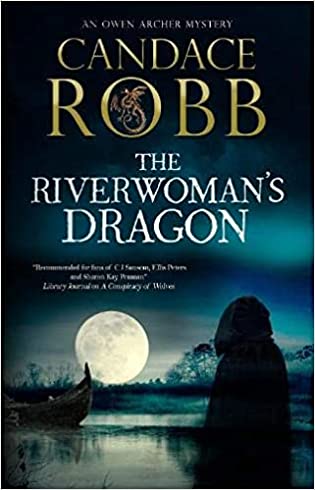 The Riverwoman's Dragon by Candace Robb
The Riverwoman's Dragon by Candace Robb Format: eARC
Source: supplied by publisher via NetGalley
Formats available: hardcover, ebook
Genres: historical fiction, historical mystery
Series: Owen Archer #13
Pages: 256
Published by Severn House on November 2, 2021
Purchasing Info: Author's Website, Publisher's Website, Amazon, Barnes & Noble, Kobo, Bookshop.org
Goodreads
May, 1375. Owen Archer returns from London to find York in chaos. While the citizens are living in terror of the pestilence which is spreading throughout the land, a new physician has arrived, whipping up fear and suspicion against traditional healers and midwives. With the backing of the new archbishop, he is especially hostile towards Magda Digby, the wise woman who has helped and healed the people of York for many years. At the same time, Magda is uneasy about the arrival of two long-lost kinsfolk. Though they say they are seeking her help, she senses a hidden agenda.
Magda’s troubles deepen when she discovers a body in the river near her home – and finds herself under suspicion of murder. Days later, fire rips through a warehouse in the city. Amongst the charred debris lies the body of a man – not burned, but stabbed in the back. Could there be a connection to the corpse in the river?
Determined to prove Magda’s innocence, Owen sets out to find answers amidst violent outbursts within and without the city walls– but the more he uncovers, the deeper the mystery becomes …
My Review:
The past is another country, they do things differently there. Just because they DO things differently doesn’t mean that they ARE different. Human beings seem to be pretty much the same under the skin, no matter when or where they are born.
Warts and all, as the saying goes about whether an artist is willing to paint the truth instead of a pretty lie.
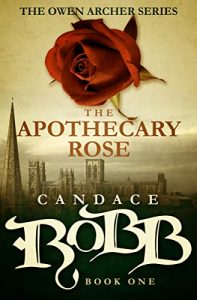 As this series has continued from its beginning in The Apothecary Rose, the political foment of the time and the mess it’s going to cause in Owen Archer’s very near future – meaning the Wars of the Roses that are just about to kick off. And there is some reference to events that are already in motion as this entry in the series begins.
As this series has continued from its beginning in The Apothecary Rose, the political foment of the time and the mess it’s going to cause in Owen Archer’s very near future – meaning the Wars of the Roses that are just about to kick off. And there is some reference to events that are already in motion as this entry in the series begins.
But the burning heart – very nearly literally – of The Riverwoman’s Dragon is a witch hunt. So for this entry in the series the author has changed the point of view of the action from Owen Archer to the witch herself, the riverwoman Magda Digby.
And what a fascinating story it is!
Magda has been a part of the series from the very beginning. She is an elderly woman who lives on an island in the river Ouse, in a house that is either sheltered under or made up of or perhaps a bit of both, a wrecked boat whose dragon figurehead crowns the structure.
And possibly protects it.
Magda is one of the women who will be targeted by the actual witch hunts of the next few centuries. Not just because she’s old and lives alone, but because she’s a healer who uses herbs and roots and occasionally a few charms to mend her patients. She’s mysterious and a bit otherworldly and she serves the poor. She’s clearly not a member of the church, a church that fears what it does not control or understand, and women’s magic in general and Magda in particular are definitely things that the male-dominated church neither controls nor understands.
And the plague is coming. Again. Magda knows that when people are afraid, they lash out at anyone or anything perceived as “other” – and Magda is both.
So Magda is vulnerable, and someone has come to York to exploit that vulnerability. Not by a direct attack, but rather by spreading fear and uncertainty, through insidious whispers in dark corners, and through sermons preached by frightened and/or misogynistic clergy. Letting the whispers grow into a groundswell of terror and conspiracy theories, letting the frightened and disaffected do the actual dirty work of burning, looting and killing.
While the true evil hides in the shadows and bides his time, stirring the population of York into a frenzy, keeping Owen Archer busy protecting too many people on all sides, so that the evildoers can slip away and start over again in some other unsuspecting place.
Escape Rating A: Written during a real-life pandemic, this historical mystery is set during a real-life pandemic. Life imitates art imitates life in a kind of neverending spiral. But that’s human beings for you, all the way around.
The series as a whole, although it’s written in the third person, generally focuses its perspective and its action through Owen Archer. He’s the investigator of this historical mystery series and it’s his doings that bring the perpetrators to justice – or at least bring the reader to their catharsis.
But this is a story about the dangers that women face, their actions and their reactions, in a world where men hold all the power, so it’s fitting that the focus of this story switches from Owen to the healer Magda Digby. She, like Owen, is a protector, but because she is female, and does not kowtow at all to the church or to any man, she is an object of fear and suspicion, an easy target for men in power to use as a scapegoat when they need one. With the return of the plague, fear is running rampant among the populace, making a scapegoat for all of that fear an unfortunate necessity – at least from certain perspectives.
So a big part of what this story does is show just how easy it is for a few people to cast suspicion on anyone who is different. It’s also a story about desperate people clinging to anything that will drive their fears away or help them make more sense of something they rightfully fear, even if that sense is mistaken and goes against what they already know to be true.
Even if those in power are stoking their fears at the expense of people’s own self interest. A self-interest that they are already too frightened to come to grips with. And doesn’t all of that sound entirely too familiar?
So a huge part of this story is Magda Digby maneuvering around and/or outright ignoring the forces that are quite literally out to get her. She continues her self-appointed rounds, tending to the health of the people who live on the margins of her adopted city – even as some of them turn on her in fear and desperation.
Meanwhile, there is a series of crimes to be solved, even if not all of them are initially recognized as such. Because, again, the people attempting to raise the hue and cry are all women, and the perpetrators are men. Men who are in such positions that no other man can believe they might be villains – especially when all the accusers are “just women”.
This turned out to be a single-sitting read for me – minus the necessary ‘human breaks’. Magda has been a central character throughout the series, but always a mysterious one, as she would prefer. This is the first time we’ve seen a story mostly from her perspective, and it’s also the first time we’ve learned a bit about her past. She’s a character who straddles two worlds, the pagan or heathen societies that raised her and trained her versus the church-controlled city she lives on the edges of.
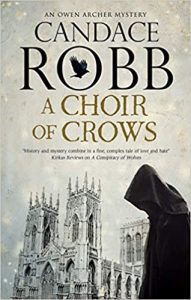 She’s a wisewoman who might just be a practitioner of real magic. Or might just be an old woman who has experienced a lot, shares the wisdom she has gathered in her long life, and just occasionally dreams that she is a dragon swimming in the river. That this particular question is never really answered feels like an integral part of her mystery.
She’s a wisewoman who might just be a practitioner of real magic. Or might just be an old woman who has experienced a lot, shares the wisdom she has gathered in her long life, and just occasionally dreams that she is a dragon swimming in the river. That this particular question is never really answered feels like an integral part of her mystery.
And in the end, this one still manages to tie itself back into the long-simmering political crisis that is about to rear its ugly head, and to the events of the previous book in the series, A Choir of Crows. I enjoyed this entry in the series for the new insights it brought into a beloved character, its slightly different perspective on Owen Archer’s York, and for the way it echoed entirely too many 21st century crises by reflecting them into a past in which they fit just as well as they do today.





